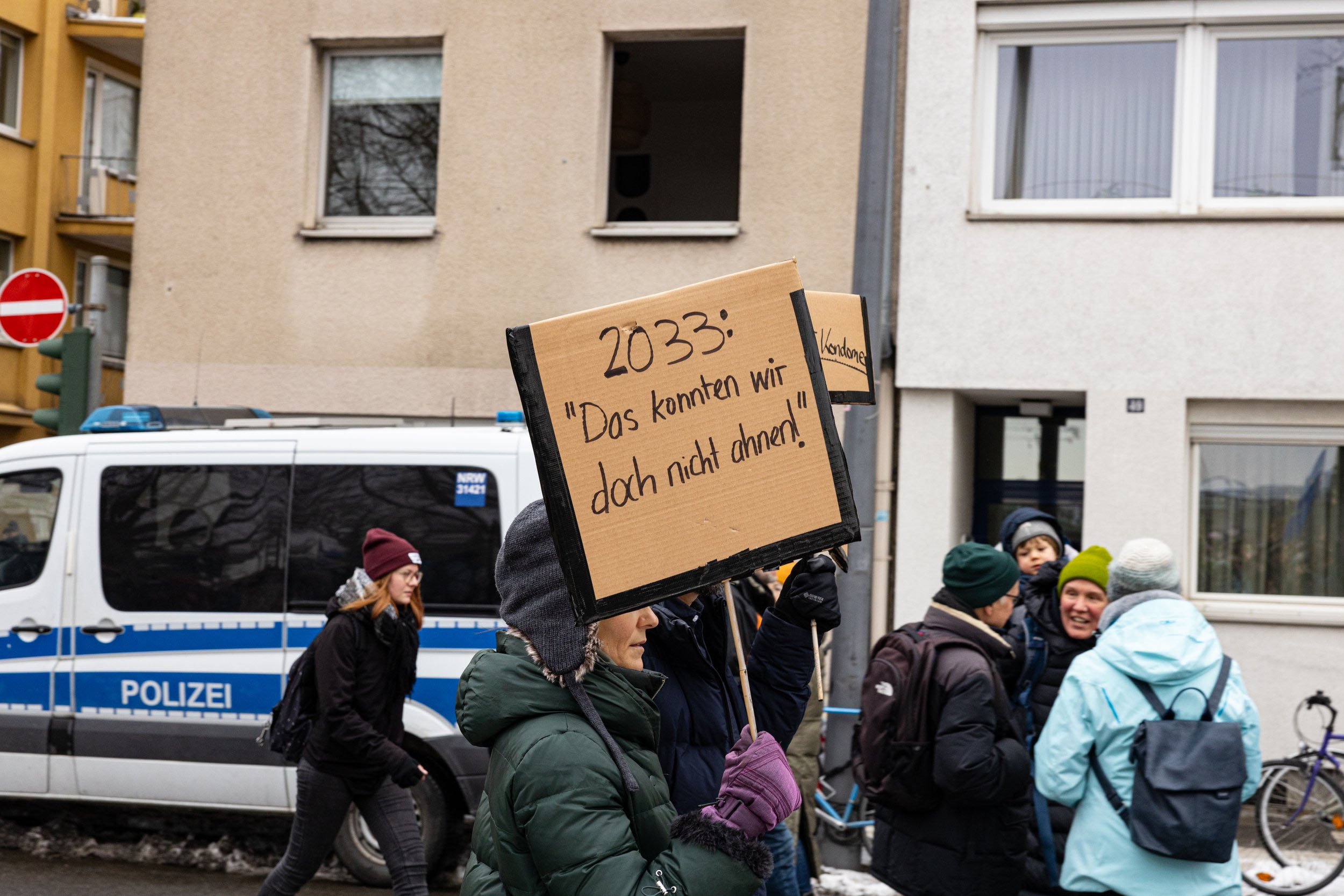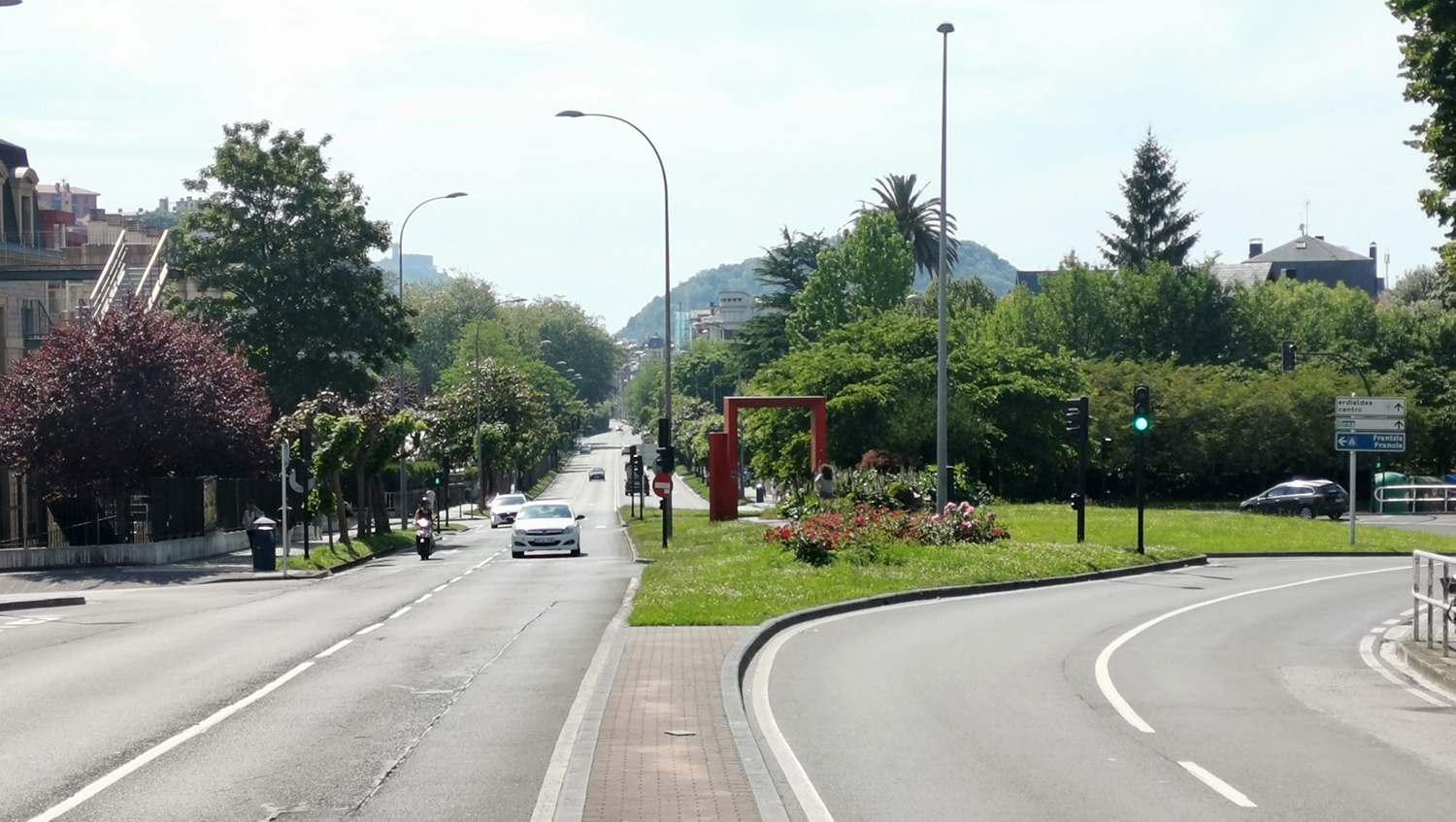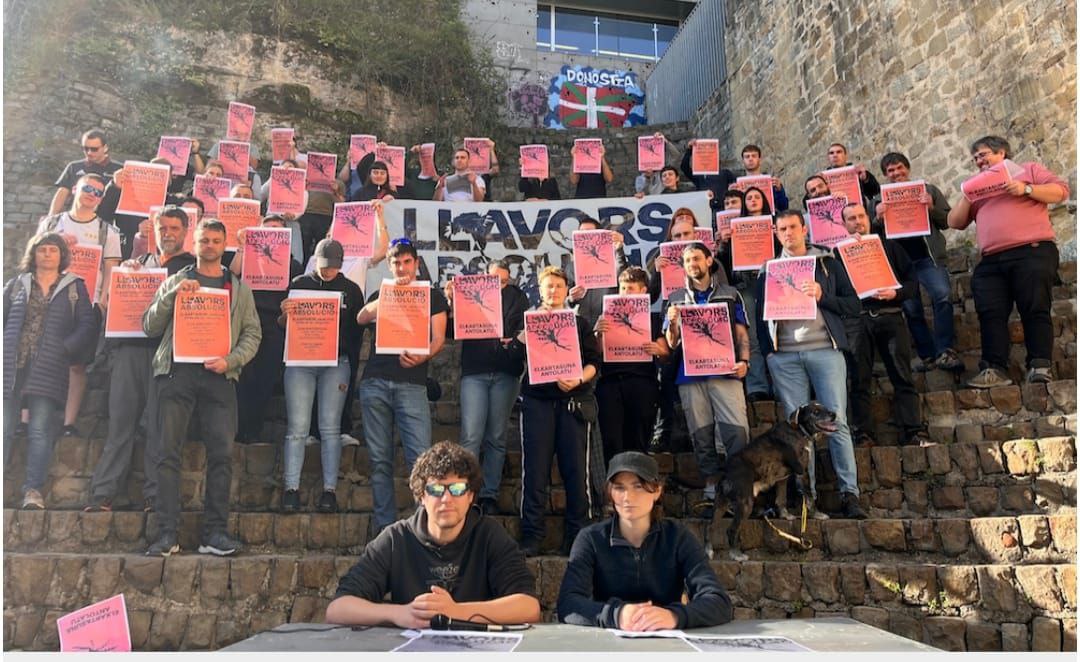Europe opens the door to the far-right converted into merchandise
- The prices of housing and rents continue to rise without limits, which has left millions of people in a very precarious situation: young people cannot afford to emancipate themselves, they have kicked many citizens of their neighbourhood, and for many the only solution is to share infravivig. What should be a fundamental right, are the constraints of making the market available since the 1980s. And everybody loses in this crisis, except the far-right thing that's causing fear among the middle class.

The far-right has been torpedoed comfortably in the European Parliament following the elections on 9 June. The growing reception of xenophobic and supremacist parties and coalitions among some citizens has led to a shiver across Europe: What is happening to a house that has boasted as the so-called cradle of human rights? There will be no lack of political analysis or sociological studies, but we cannot deny that we are seeing directly the collapse of the European welfare state, and that the tremors of this great fall have awakened the ghosts of yesteryear.
Proof of this is what is happening with housing. The crisis is not a question of Malecon de Zarautz, of Miraconcha de San Sebastián or of the Casco Viejo de Pamplona. It is something that has affected the whole geography of Euskal Herria for a long time and has now become a major problem that has spread to all sectors of society, not only in our own, but also in many other European countries. According to Eurostat, between 2010 and 2022 housing has increased by an average of 47% and the rent price has increased by 18%.
This is the data that Jon Henley recalled in The Guardian, as well as other data such as: In Germany, one in five families spends two thirds of their salary on rent, and in many European cities the waiting time for access to social housing is over ten years. “After decades of cooking, the real estate crisis is overflowing from the Netherlands to Portugal, from Greece to Germany and Britain. Rent prices have risen enormously, accessibility has dropped considerably and housing has become a political problem,” says the European correspondent of the British newspaper.
This crisis has catastrophic consequences. For example, we have read in Naiz.eus that the range of non-emancipable young people continues to grow, based on data from Eurofund, which in the last five years has increased the number of young people between 25 and 34 years of age who live with their parents by 3%. But it has another much more worrying consequence: fascism has hit cox-kox at the door of Europe taking advantage of the housing crisis.
Abou-Chadi discovers that much of the rise of the AfD, beyond the urban centres, has also occurred in rural areas, where rents have remained lower. “The reason is not only the real difficulties, but also the concern behind them: the threat of social and economic status”
Henley has given us some keys to this juncture in The Guardian: “Housing has the capacity to be the support engine of the far-right, as well as the issue of immigration,” he warned. Fix Europe’s housing crisis or risk fuelling far-right, UN expert warns the words of United Nations Housing Rights Rapporteur Balakrishnan Rajagopal. “The housing crisis no longer affects people with low incomes, immigrants or single-parent families, but also the middle classes. It is a social problem of the 21st century,” explains Rajagopal.
Last year, the PVV won the Dutch votes conducted by an Islamophobe: “[The housing problem] was one of the voters’ main concerns in these elections,” Henley stressed and the same has happened in Portugal, where the Chega party, which can be located at the far right, has tripled the results with the housing issue.
A recent academic research in Germany has linked the growth of the rent to the increase of the tip of the right, which should not necessarily have a clear attitude against immigration, the message is much more subtle. The Rental Market Risk and Radical Right Support investigation is available on the Internet and The Guardian journalist talks with Tarik Abou-Chadi of Oxford University, one of its authors.

Asked about the strength of the Alternative to Germany (AfD), the researcher states that the “fear of losing status” is a key factor: “Housing is part of a larger set of economic threats and uncertainties that fuel anxiety.”
Abou-Chadi discovers that much of the rise of the AfD, beyond the urban centres, has also occurred in rural areas, where rents have remained lower. How is that possible? “The reason for the rise is not only the real difficulties, but also the concern behind it: that social and economic status is threatened,” he concludes.
Decade of 1980: All For Sale
Along with the precarious labour market, fascism has become an exclusionary urban development, the other necessary scale for fascism to grow in Europe, with its “important political implications”, Abou-Chadi stressed in his study.
It can take us well, therefore, to look at what we have done if in recent years it has not been done with what has been called “sustainable” urbanism for decades. The demands of the friends and friends who left the street on May 26 in San Sebastian are not entirely free: against those who have put “for sale” the city ask for another model, instead of allowing hotels, tourist homes and culinary in any corner. We know that gentrification is not only a problem for the Jojanos of San Sebastian, it is a global phenomenon that has reached many other cities and towns, and has an explanation in the neoliberalism of the last 40 years.
The demands of the friends and friends who left the street on May 26 in San Sebastian are not entirely free: against those who have put the city “for sale” ask for another model, instead of allowing hotels, tourist homes and culinary to be made in any corner
“Europe drank from the Kool-Aid of the 1980s,” says Balakrishnan Rajagopal, UN rapporteur in The Guardian. Like this sweet stimulant, the market talks about times when Thatcherism was strengthened and social policies weakened. He considers that there has been a real estate crisis “like any other good that can be sold and bought because housing has been treated”. The state stopped planning, thinking that the market would do everything… “But markets really only take care of themselves,” he says.
Margaret Thatcher invented a poisonous motto in which citizens had the right to “buy” their home. In this way, what was managed through public policies and which required a fundamental right was left to the financial markets. It was followed by almost all the other European countries. Four decades later, states cannot guarantee decent housing for all citizens, and parties such as the PVV, the Vox or the RN of Le Pen blame the migrants because it is easier for them to set in motion what has nothing, than to enmity with the neoliberal elites less different than their own.
Donostiako Zurriola Haur Hezkuntza, La Asunción eta The English School ikastetxe inguruak eta Bilboko Kontxa Eskola eta Calasancio-Escolapios dira karbono dioxidoaren muga legala gainditzen dutenak, Ekologistak Martxanek hainbat eskola ingurutan egindako azterketaren... [+]
Hedabideetan nahiko aipatu dira asteleheneko itzalaldiak gizartean eragin dituen ondorioak, baina nahikoa aipatu al da gertakari horrek agerian uzten duena? Besteak beste, bi auzi nagusi: bizirauteko energiarekiko dugun menpekotasuna eta azken urteetan gertatzen ari den zerbitzu... [+]
Egunak argitzerako itzuli da argindarra ia-ia leku guztietara. Euskal Herrian baino atzeratuago egin du Espainiako Estatuko lekurik gehienetan, baita Portugalen ere. Normaltasun itxura gaur Euskal Herrian, baina goizeko lehen orduan ez dira funtzionatzen ari aldirietako trenak... [+]






















